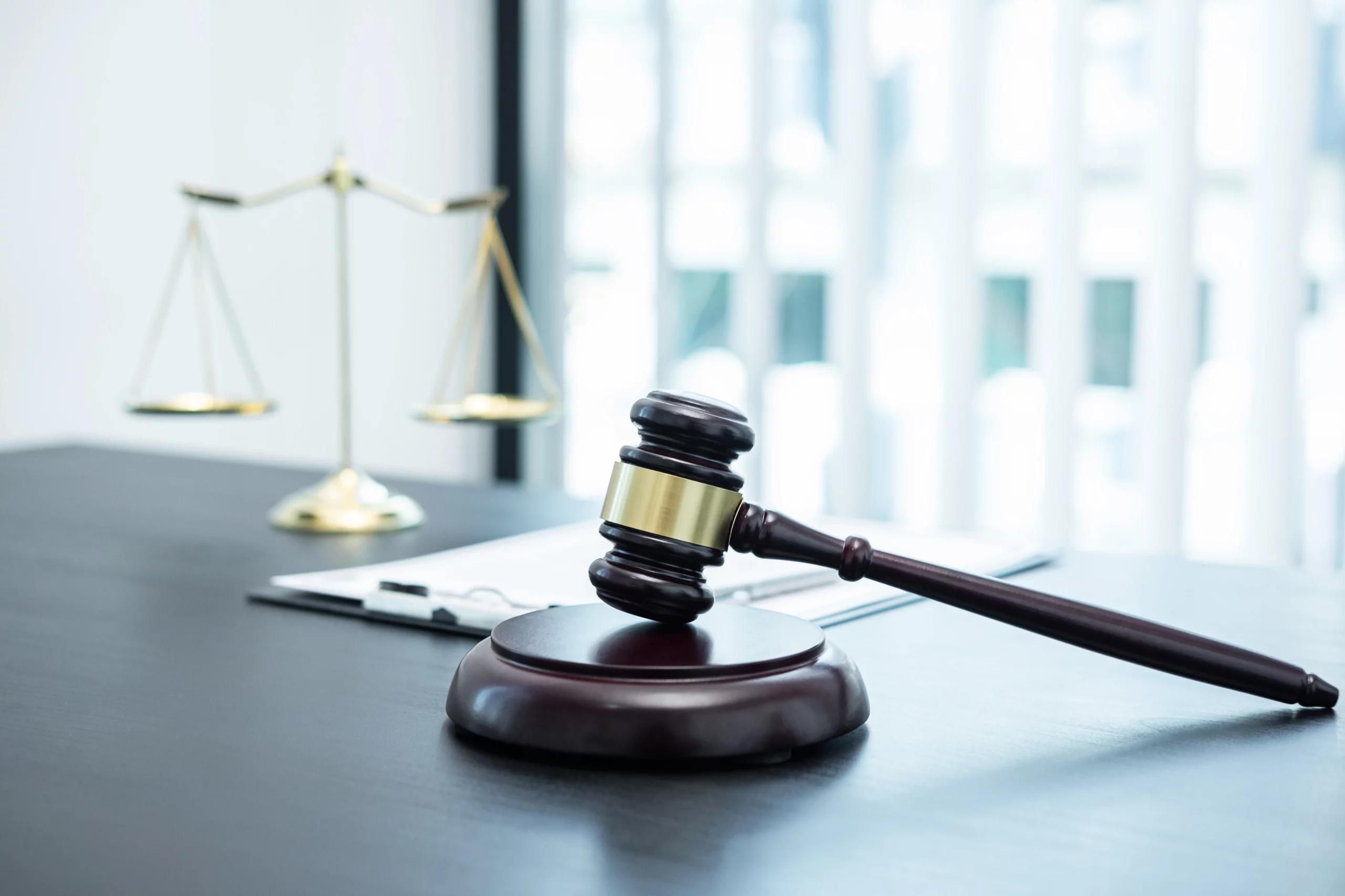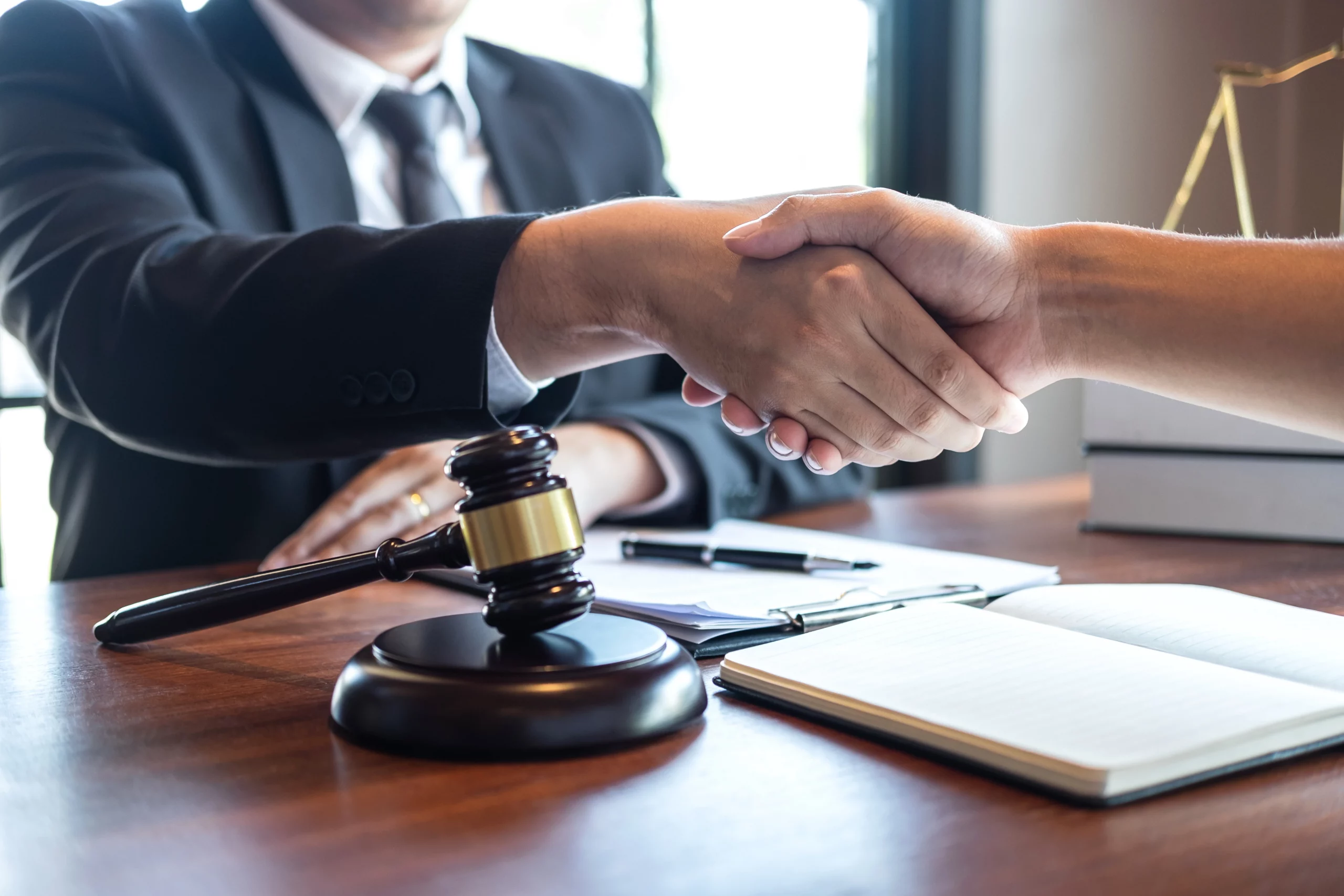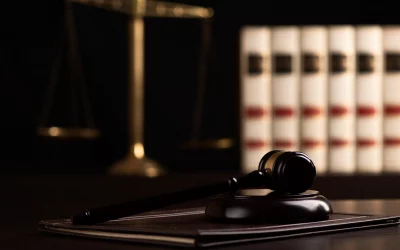There’s much to consider following a car accident regarding what to do next. Having to deal with an insurance company may be both frustrating and daunting.
Is there a process for claiming compensation for an automobile accident? What specific details are you looking for? If you need support, how quickly can it be delivered? As soon as the agony is through, all you want to do is go to bed and rest.
We’re on the same page. Since we’ve been there ourselves and helped thousands of others, we know what we’re talking about.
Clients have relied on us for over two decades to help them file insurance claims and make life-changing payments.
To help our loved ones who are dealing with the aftermath of an accident, we’ve compiled a list of personal injury claim “Do’s and Don’ts.” What’s most important? Never give an insurance company a recorded statement without completing these steps first!
CLAIM FOR PHYSICAL INJURY
When you contact us regarding a possible accident injury claim, we do our best to ease your anxiety. With the support of an experienced attorney who will fight for your rights and help you get the financial compensation you deserve, our intake professionals will gather the information we need to begin your case and help you navigate the claims process.
But before you get to that stage, you must go through many hoops to jump through.
As you move through the various stages of your journey, here are some things you may do to help your case and some things you should avoid.
DO:
If you are in a car accident and the person who caused it can provide you their name, address, phone number, vehicle identification number (VIN), and insurance information, DO IT.
Make a police report request by calling the police. Insurance companies may debate your word against their clients if you simply exchange facts. This could cause a delay in determining guilt. No matter how little the damage appears to you, you should still call the police. When it comes to evidence, there is no such thing as “too much evidence.”
Don’t be afraid to snap as many photos as you can. Be sure to take pictures and video of the entire incident, including the road itself, any adjacent signage, the cars involved, the vehicle damage, and any hurt people. You should also take images of the other driver’s license plate and insurance card.
Immediately get medical attention if you feel unwell. It may take several days for some of your injuries to manifest any symptoms, so you must get medical attention as soon as possible. Then it’s too late, and you’ll have to deal with a long-term problem.
As quickly as possible, seek the medical attention you need and deserve. If you have medical records and records of quick care, you can show insurance adjusters that you were hurt.
Do your best to maintain a regular schedule. Attend all your follow-up appointments and any physical treatment your doctor may prescribe. Nobody can afford to ignore or postpone taking care of their health because they have other obligations.
Do not delay in contacting an attorney. Let us begin working on your case right away! After an accident, you’ll need the help of an experienced personal injury lawyer. You don’t have to worry about anything; we’ll take care of everything from filing your claim to getting you the free medical care you need and fighting for the reimbursement you’re entitled to.
Inform your car insurance company of the incident. After the case, your attorney will keep in touch with them and the defendant’s insurance company.
Recall all the time spent recovering, seeing doctors, and so on that, you have missed from work. Your lawyer will do all their power to ensure you are paid for any missed wages. If your vehicle is totaled in an accident, keep track of additional costs, such as rideshares or a rental car.
BONUS: For premises liability claims (e.g., slip and fall accidents in a store or rental property), you will receive the following:
Be sure to let your boss know about the situation. When you trip and fall in front of others, trying to brush yourself off is easy to avoid drawing attention to yourself. But even if there is no immediate danger to your health, it is important to inform the property manager of your incident.
Make sure you have the contact information for the manager. The names and contact information of the manager, personnel, and any other witnesses should be requested, even if it is difficult to remember. The best way to follow up on an incident report is by requesting a corporate phone number.
The incident report should be obtained. There are a few differences between Premises liability and other accident claims, such as that most stores file incident reports. Businesses have no legal obligation to give you a copy of an incident report.
Although an event report is not required to file a personal injury claim, it might be beneficial. When you speak with them, request a copy of the company’s incident report protocol from upper management.
Don’t forget to take a few pictures. Make sure you take images of any risks before they are fixed by staff or property owners so that others don’t get hurt. Take pictures of the area where you fell, the surrounding regions, your injuries, and any spills, defective structures, or other dangers you may have encountered.
Even if you do not have health insurance, you should seek medical attention if you are harmed. Make sure you don’t let your financial problems get in your recovery. Please contact us if you’ve been injured in a slip-and-fall accident. We’ll put you in touch with the medical attention you require, completely free of charge!
DON’T DO:
Do not leave the collision scene unless you’re in an emergency vehicle. No matter who was at blame, it is against the law in nearly every state to flee the scene of an accident if there are injuries or damage to property… The only way to determine if this is the case is to get in touch with the other driver(s). On the other hand, there is the matter of…
After an automobile accident, do not put yourself in danger. Take your vehicles off the road and assess them for damage if it is safe. You don’t want to be in the way of oncoming traffic when you’re trying to avoid a pileup.
At the scene of an accident, do not engage in any kind of argument. Keep your cool and remain calm. Wait for the police to arrive. Adding an assault to the mix after a car accident will only worsen things.
Neither the police nor your insurance company will take a bribe in cash. Accident-causing drivers may offer victims money or a check to avoid dealing with an injury claim or a rise in their insurance premiums. This may seem like a good idea, but you should use caution because you may be hiding ailments.
Sometimes it takes a few days to notice the effects of soft tissue injuries, and by that time, you could be facing a stack of expensive medical bills that you have no way of paying. Report the collision to the authorities and both of your insurance providers appropriately.
The tow truck should not transport your car to a storage facility. As an alternative, you can have them deliver it to you. You don’t want to be saddled with an unexpected bill from a storage facility. You must remove your vehicle from storage as soon as possible and retain the receipt to be reimbursed if the other motorist’s insurance company accepts liability.
In the absence of legal counsel, never provide an insurance company with a recorded statement. This recorded statement may be used against you in the future. This is the most crucial piece of advice on our list, so we’ll repeat it: Do not give a recorded statement to the insurance company! Similarly…
Don’t tell the insurance company about your injuries or current medical care. Again, insurance adjusters employ a variety of ambiguous terminology with the express purpose of confusing you. To minimize the seriousness of your injuries, they’ll distort your statements.
Don’t talk about your car accident on social media. Your social media posts could be used against you by your insurance company if they can find them.
For example, if you were to share a picture of your wrecked automobile with the remark “so happy I’m alright,” it could be taken as a sign that you are “alright,” and so invalidate whatever pain you have may be experiencing.
Don’t send anything to the insurance company directly. You should leave it to your lawyer to take care of. Remember that no matter how kind the insurance company appears, they are not your friend.
Don’t sign anything until you’ve spoken to your lawyer or case manager first.
Don’t accept insurance company cheques or settlements without legal counsel. You might as well chuck out the whole thing. It is possible to miss out on tens of thousands of dollars even if an offer sounds fantastic to you.
Your injury lawyer should be consulted before accepting any settlement offer from an insurance company. You may not be aware of the debt you owe, but our responsibility is to make you aware of it!
Do not exaggerate the severity of your injuries or the extent of your discomfort. Remember that your doctors and attorneys want to know how the discomfort will affect your everyday routine.
- What will your pain levels be like when you return to work after a few weeks of rest and recovery?
- Is it still possible for you to participate in your favorite pastimes?
- Can you have fun with your kids? Do you have a different range of mobility?
- When you meet with your doctor to discuss your pain and limits, keep these points in mind.
THE PERSONAL INJURY CLAIMS PROCESS: WHAT TO EXPECT
LAWSUITS FOR PERSONAL INJURIES
When filing an injury claim, things might become a little tricky. Most people don’t think they’ll ever be victims of someone else’s carelessness or willful behavior.
A thorough understanding of civil tort law was an important part of our attorneys approach to personal injury lawsuits at Warrior Injury Law.
Accident, medical malpractice, defective product or neglect caused by someone else’s negligence might be grounds for a lawsuit. Do you know what to expect or how long it will take to resolve a typical personal injury case?
Injured individuals must go through the personal injury claims process when hurt in a automobile accident, slip and fall accident, medical negligence, or any other incident.
A personal injury lawsuit follows the following steps.
THE PROCESS OF FILING PERSONAL INJURY CASES
Almost all personal injury lawsuits follow a similar path, from the victim seeking medical attention as necessary through a settlement or jury award reached through negotiation.
- The victim is injured as a result of someone else’s carelessness. Usually, an unforeseen accident, occurrence, or event substantially alters the victim’s life, leaving them with large medical expenditures and health concerns.
- To get help, the sufferer goes to the hospital. When an unforeseen accident, incident, or event occurs, a doctor or diagnostician can identify and treat the underlying health conditions to help the victim’s recovery.
- The injured party hires a personal injury lawyer. An expert personal injury attorney is contacted immediately to explore the case’s merits in a free consultation.
- The victim filed a personal injury claim against an insurance company. This begins the legal process of obtaining compensation for medical expenses, lost wages, and other losses.
- There are a lot of documents, proof, and research involved. When you hire an experienced personal injury attorney, they’ll begin to create a case that identifies all of the defendants and any third parties that may have been responsible for your injuries.
- Negotiated a settlement or a court case. Insurance companies for the defendants will make a good faith settlement offer during the negotiation process in exchange for compensation. The lawsuit will be trial if the parties cannot agree on a settlement.
As a result of the lengthy procedure, many personal injury lawsuits take many months to be resolved. Before discussing a settlement or proceeding to trial, personal injury attorneys typically wait until their client gets maximum medical improvement (MMI).
An injured person has either completed or nearly completed their medical therapy to reach maximum medical improvement, even if they are not yet completely healed.
YOUR INJURY LAWYER
Calling your lawyer is the initial step in filing a personal injury case. It’s best to get this taken care of as soon as possible after your injury. After your free consultation, your injury attorney will begin working with you to understand the facts of your case as soon as you establish an attorney-client relationship.
After evaluating your medical records, the police report, and other relevant documents and evidence, an express personal injury attorney will offer a case evaluation or a case review to decide if the case can be successful.
In addition, they will aid in gathering evidence, such as medical records and interviews with people who can serve as witnesses. Personal injury claims can be made to the insurance company, or they can be filed in court.
WHAT HAPPENS AFTER YOU FILE A PERSONAL INJURY CLAIM?
When a demand letter is sent from the victim or their attorney to the insurance company, it is not uncommon for them to deny or delay payment. A personal injury lawyer will create a legal complaint and file it with the court before the state statute of limitations ends if you have such an epiphany.
Personal injury lawsuits can begin as soon as the court files the complaint and serves on the liable party. The discovery process will proceed by the court-ordered timetable.
Following filing a complaint, the defendant has the right to react in writing to your complaint. The defendant will address each of your allegations in turn in this paper.
In most cases, they’re telling the court that they either deny or cannot admit your facts to the contrary.
The defendant often brings a motion to dismiss after the complaint and answer have been filed. Courts frequently hear arguments from the defense that your lawsuit lacks validity and that you have not complied with the court’s procedures.
To get your case thrown out, they’ll employ a variety of grounds. It’s good news for you as a plaintiff, as judges are more likely to reject your move to dismiss the lawsuit than to allow it.
INVESTIGATING AND DETERMINING THE CAUSE OF YOUR INJURY
If your lawsuit makes it through the motion to dismiss, the next step is the discovery phase, which can take weeks or months to complete. A year or more is not uncommon for this case phase to be completed.
Each side exchanges material during discovery that helps construct the case’s factual record.
Requests for information and documents are likely the first step in the discovery process. Interrogations and requests for papers are known as these. You can, for example, pose questions that are based on facts. Requests for specific records and emails can also be made this way.
A party must comply with your request if it includes essential papers that are not exempt from certain restrictions. Because no two parties in a lawsuit have the same point of view on everything, it is not uncommon for both to appear before the judge multiple times during the discovery process.
Deposing witnesses is the most time-consuming aspect of discovery. At this point, your lawyer can summon witnesses or parties to the case to testify under oath. Another reason to conduct research is to discover what people already know.
Evidence gathered during the discovery phase can’t be contradicted by witnesses who testify at trial.
It is possible that as a plaintiff in action, you will be deposed. There’s a good probability you’ll be quizzed during a deposition. Since depositions can run up to seven hours, deposing witnesses can be a taxing experience.
FILE SUMMARY COURT DECISIONS
Both parties are likely to file additional motions to avoid a court hearing following the completion of discovery. Motions for summary judgment are the legal term for this type of action.
By now, you’ve gathered evidence from the discovery phase and are using it as evidence to convince a court that indisputable facts support your claim for relief. You can expect the defendant to utilize the same tactic in the same way that you did.
Meanwhile, you will regularly participate in settlement negotiations with the defendant throughout the procedure. Even though you can present all of your evidence and information at trial, the chances are that your case will never conclude.
According to statistics, the vast majority of personal injury lawsuits settle before they go to trial.
Occasionally, a settlement is reached during the trial or just before the verdict being rendered by the jury. In other words, negotiations are continuous throughout personal injury claims.
INJURY CASE TESTIMONY
There are situations when no agreement can be reached between the parties in a personal injury case. The court will establish a date for the hearing if this happens. Jury selection will occur first, followed by opening comments from both sides.
If this is the case, the court will allot a specific amount of time to each side to deliver their arguments.
Plaintiffs can call witnesses and submit their evidence before a judge or jury. You will certainly face cross-examination from the defendant’s lawyer as a witness.
Witnesses can expect the same level of interrogation and cross-examination from you and the other side. Your injury lawyer will present evidence to support your claim, and the defense will present evidence to refute your claim. Each side will then make one final point before the debate concludes.
If there is a jury, the judge will provide instructions to the jury after both parties have rested their cases. The jury will then begin deliberations.
If you request a bench trial or a jury trial, the judge or jury will provide a decision. It doesn’t matter if you’ve met the preponderance of the evidence threshold.
The jury considers all of the evidence before deciding on whether or not you have proven that the other party is responsible.
Both sides are eager to learn the trial’s outcome from the jury. A verdict in your favor does not mean the case is over if the opposing side decides to appeal.
When a jury awards substantial damages, the defendant is likelier to try to overturn the decision.
The appellate court has the power to overturn many important jury decisions, which is a sad reality. However, in most situations, you can appeal a reduction in your reward.
PERSONAL INJURY ATTORNEYS CAN HELP YOU STREAMLINE THE CLAIMS PROCESS.
Contact Warrior Injury Law to schedule a free first consultation and learn more about personal injury litigation. Our attorneys and trial lawyers well-versed all facets of personal injury law.
To schedule a free case evaluation, call our law firm at 719-300-1100 (toll-free) or fill out the form on this page. During our partnership as your lawyer’s client, whatever private or confidential information you provide to us remains just that: a secret.
Personal injury claims are handled on a contingency fee agreement, meaning no fees are paid unless the matter is settled. To assess how much compensation you are entitled to in a settlement, we need to begin working on your case immediately.











